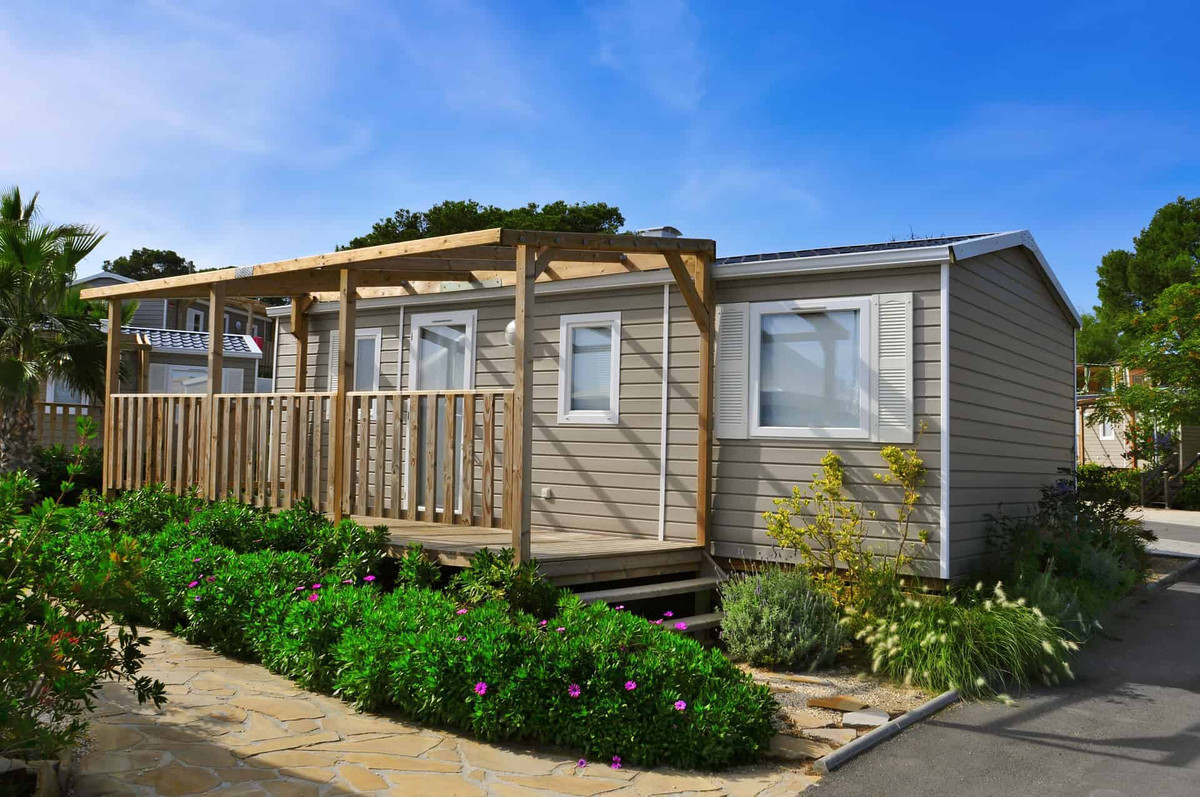
Conventional Land & Home Financing for Mobile Homes
Financing a Land & Mobile Home Package
There are two similar loan options available to finance a new mobile home and property together in one loan:
1) Conventional land and home financing
2) Government backed land and home financing
Though similar, there are some key differences. Today we will focus on conventional land and home financing, what the process for financing is, and what the benefits are when purchasing your new mobile home with this option.
What is Land & Home Financing?
When buying a mobile home, you need to have a piece of property to place the home on, unless you plan to rent in a mobile home community.
While some folks are able to place their home on family property or gifted land, others will need to buy their land new and will oftentimes need to put in the electricity, water, and septic from scratch.
Opting for a land and home financing option will not only roll your land and home purchase into one home loan but will also allow the land improvement costs to be rolled in as well.
This means not having to come up with additional cash for your base pad, decks, or even driveway depending on the total amount of financing you qualify for and the amount you have available for the down payment.
Going “conventional”, meaning the loan is not government backed, your down payment will typically fall between 5-10% and your interest rate will be subject to the current market rates rather than the lower upfront rates of an FHA or VA loan. (Stay tuned for next week when we talk about the pros and cons of the government backed FHA, VA, and USDA land and home loans.)
How Does Financing My Land and Mobile Home Work
The same with most financing, land and home loans begin with a credit application.
You will want to have an idea of the cost of land in your target area and the price of the home you are interested in owning. Your housing consultant will also help with estimates for land improvements needed and/or wanted to include in the amount submitted to the bank as well.
The credit application will include information about your income, job history, and current residential status that will be verified with the necessary paperwork after an initial approval.
After receiving an approval and accepting the terms of the loan (down payment, interest rate, and loan amount) it will be time to find your property and get the site inspected and researched to make sure it is suitable for installation of a mobile home, is not in a flood zone, is on a main road, and has reasonably accessible utilities—the further electricity and water is, the more expensive they will be to install.
The site inspector can also assess costs for other improvements you may want for the property, such as land clearing, decks, skirting, or even a carport.
Once you decide to make an offer on a property and have the land contract and copy of the current owner’s deed, you will submit the property information to the bank detailing the purchase price, tax history of the land, and a copy of the deed from the current owners.
The next step is the appraisal. The bank charges a fee of $600 that is paid directly from the customer to the lender before they can proceed with appraising the land and working up the documents that will get you to the closing table.

What Happens After I Close on the Loan?
Once you have closed–signed all the paperwork and provided down payment–on a land/home loan, your home will be ordered and built at the factory while site improvements to prepare for the delivery of the home will begin.
With a conventional loan, you do not have to hire only licensed contractors to complete the site work. You can have help from friends and family, do some of the work yourself and finance the materials, or opt to get bids from trusted local contractors in your area.
However, your specific county or city might have its own requirements calling for only licensed contractors to do certain portions of work (such as water, electricity, and septic) and it’s important to know local building ordinance ahead of time.
Delivery, Set, and Utility Connections
Once the home is built at the factory and the site is ready, the home will be delivered and set on the foundation.
This is the queue for all other trades to get in and complete the utility installation, hookups, air conditions, decks, and skirting.
What was only a raw piece of land a few weeks ago will quickly turn into the home of your dreams with everything you wanted completely turn-key and move in ready.
One of the biggest reasons many families opt to buy a home this way is knowing they won’t have to worry about running out of funds before being able to complete the projects they want to make their home feel more complete.
The land and home financing option does take more time upfront before move in day, but can also make your down payment stretch into all the add-ons that might take years to save for otherwise.
If you’re interested in speaking with a housing consultant about financing your land and mobile home, give us a call today at 210-361-0725. We’d love to hear from you!
Have a question?
Drop us a message and we'll get back to you with some answers!
